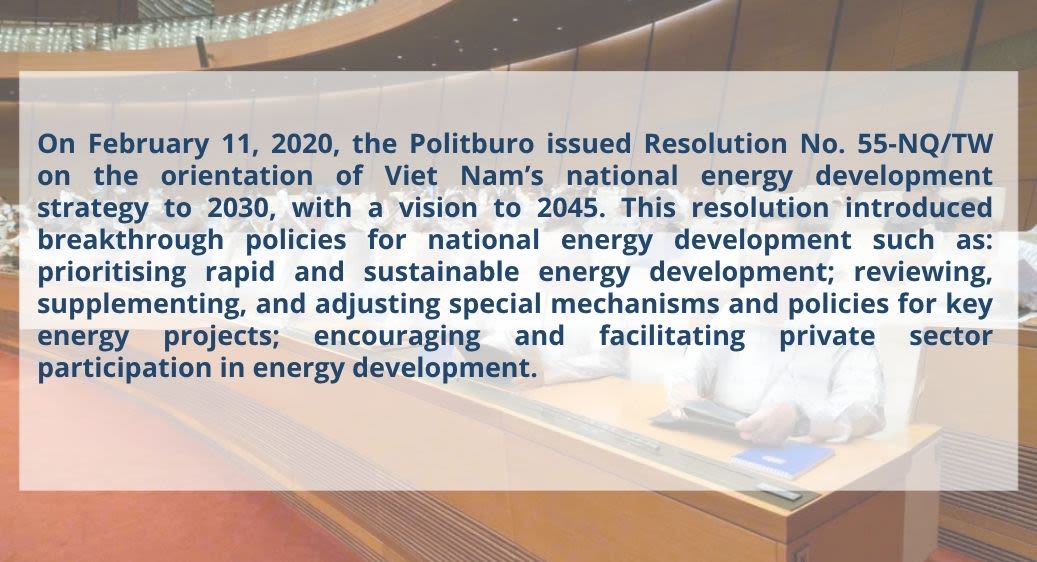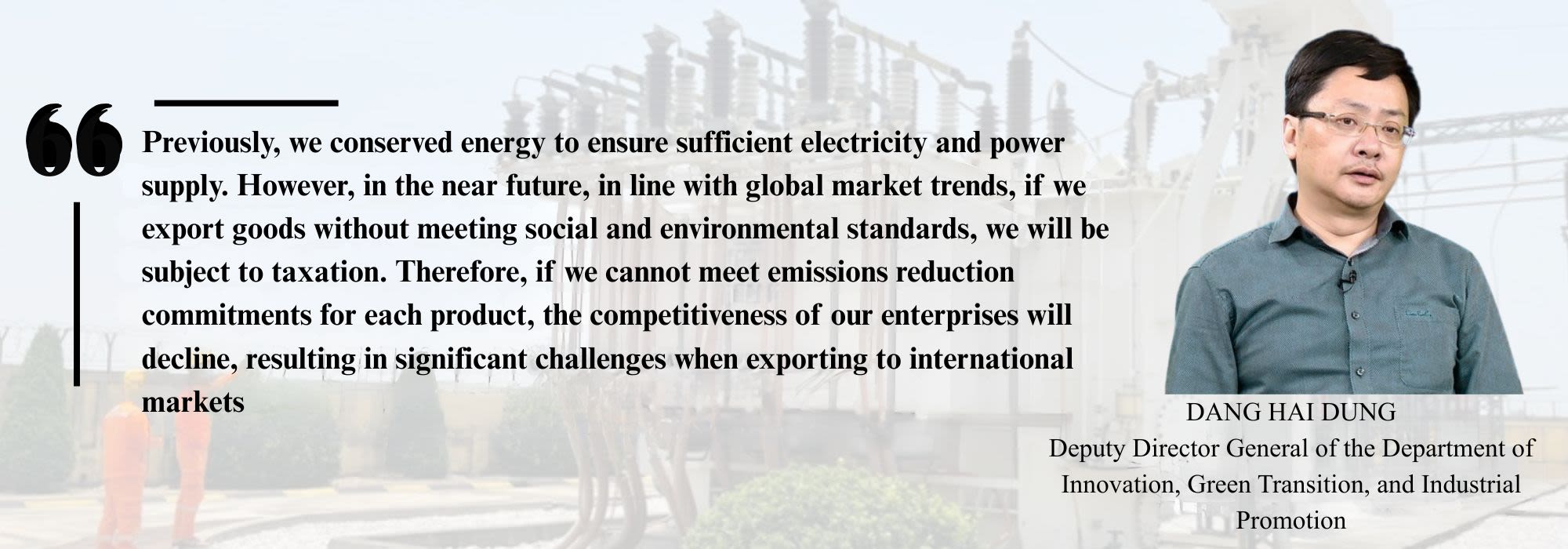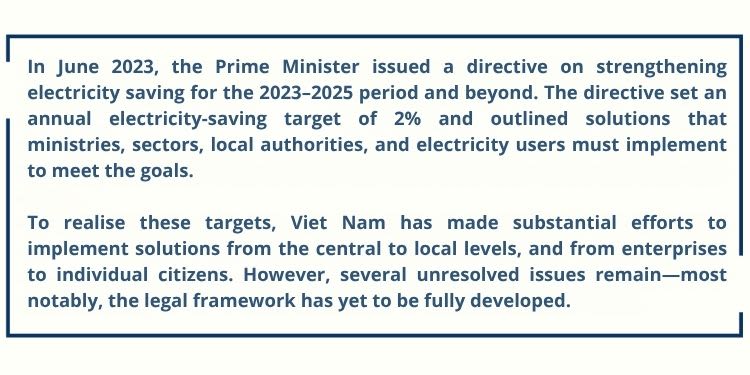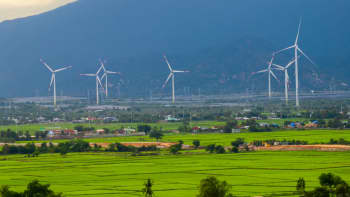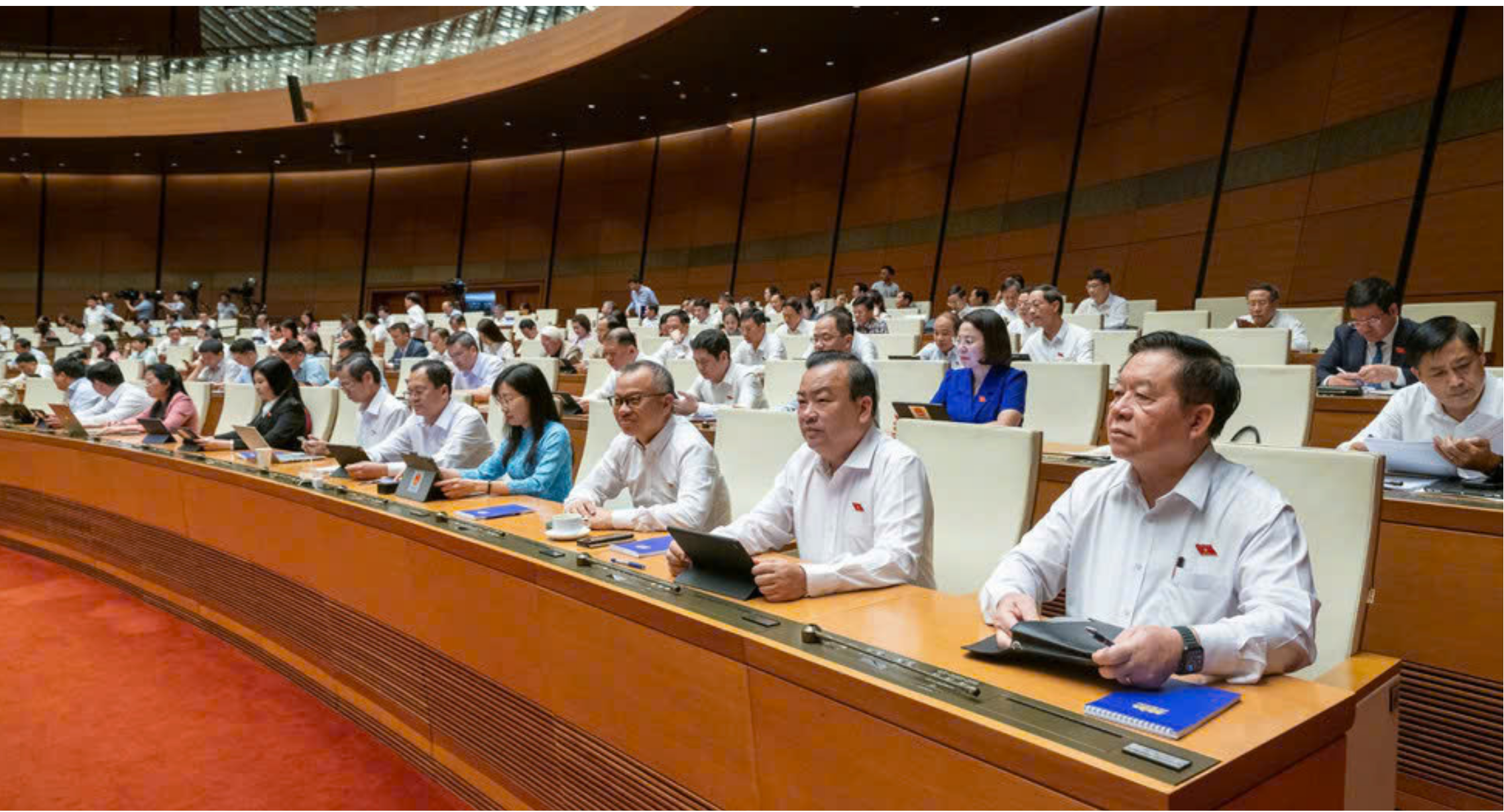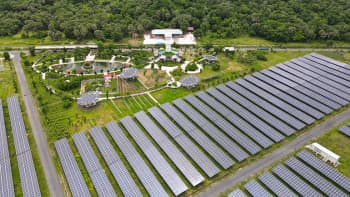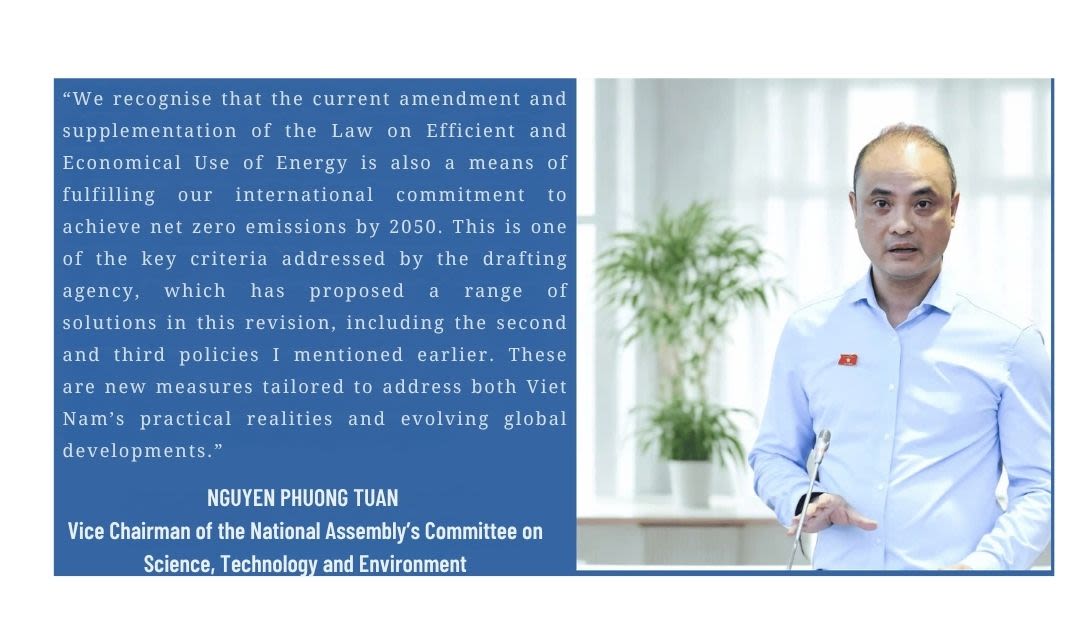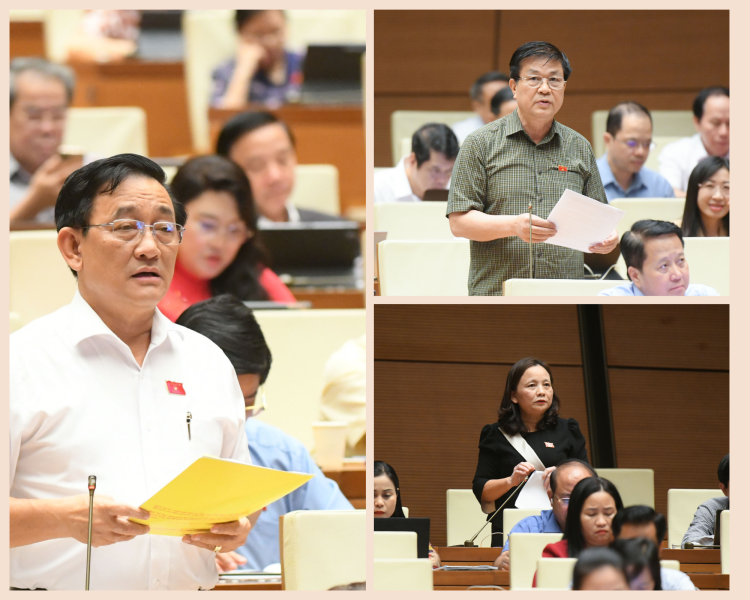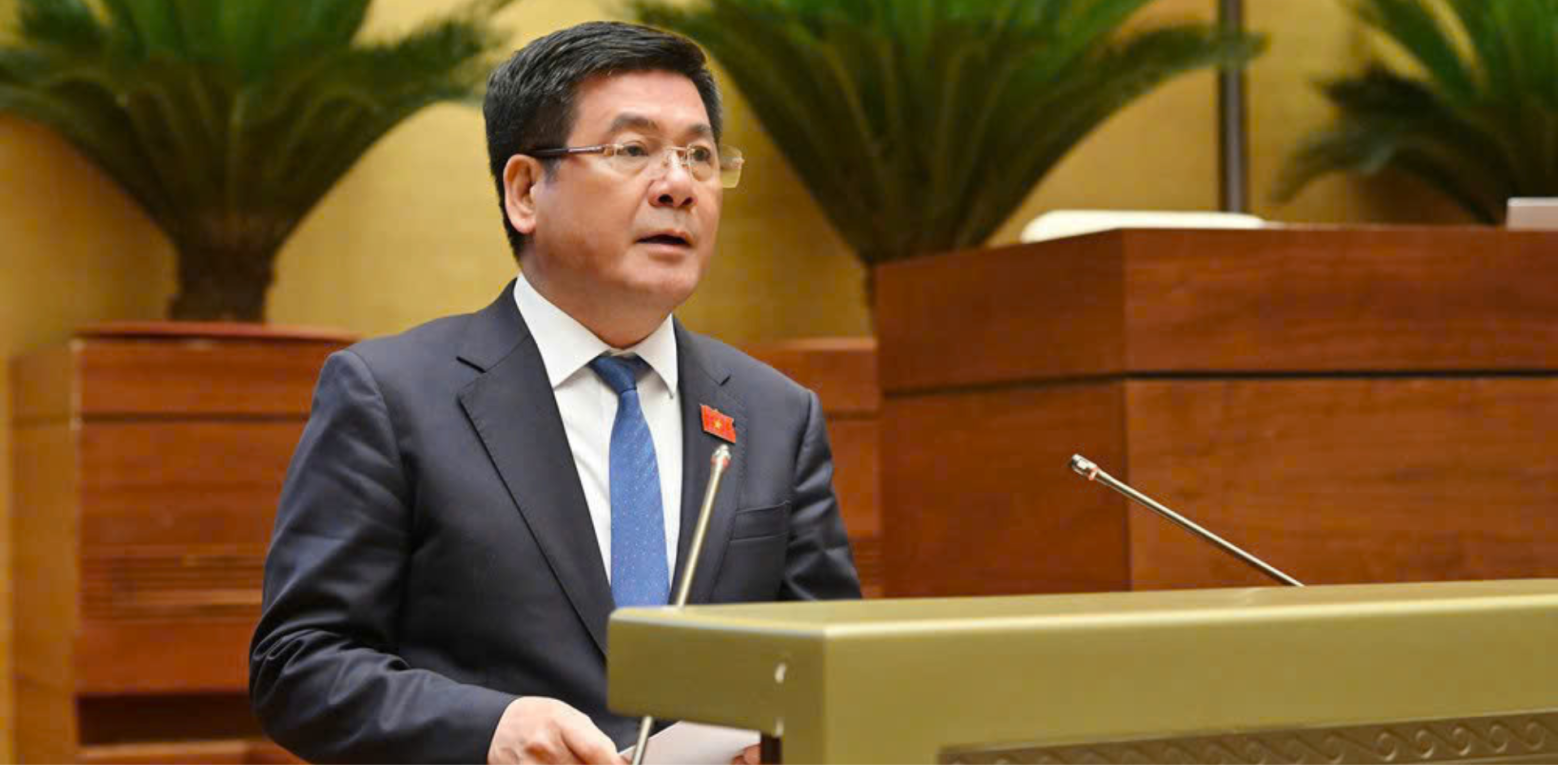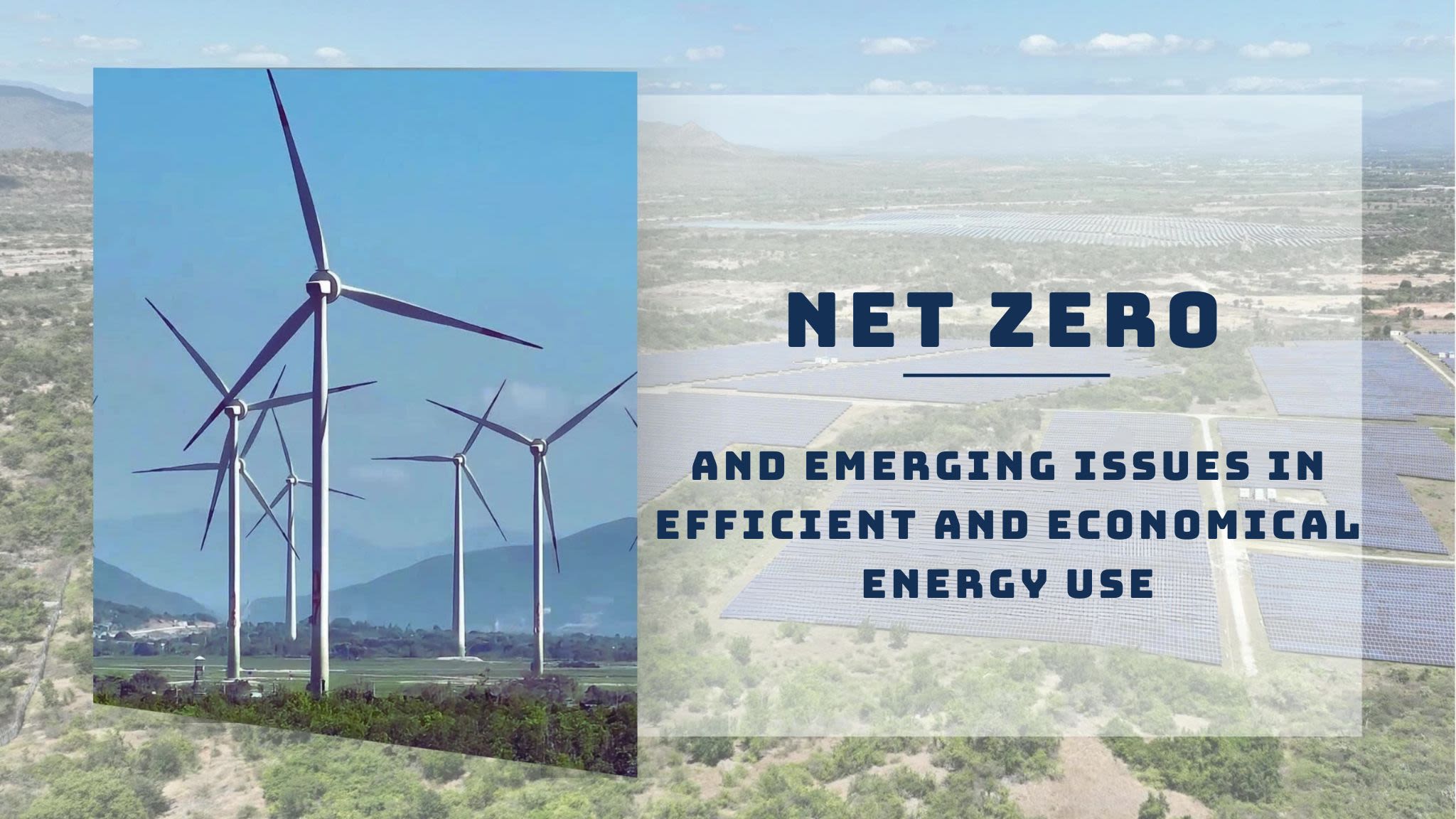
To promote green transition and the move towards the Net Zero target by 2050, Viet Nam is in urgent need of a strong legal framework. Among these efforts, the amendment of the Law on Economical and Efficient Use of Energy is considered a crucial step, laying the legal foundation for sustainable development and the reduction of greenhouse gas emissions.
Energy has been playing an important role in Viet Nam’s economic and social development. The country’s energy demand has risen significantly in recent years, especially amid rapid urbanisation and economic growth. Between 2010 and 2019, primary energy consumption in Viet Nam increased by approximately 6% per year, with commercial electricity output recording an average annual growth of 9.71% during the 2010–2021 period. Viet Nam is also among the fastest-growing energy consumers in Southeast Asia, along with Indonesia and the Philippines.
Projections suggest that energy demand in the country will continue to grow at a high rate in the coming years. Therefore, economical and efficient energy use remains a necessary and practical solution to improve economic performance, conserve national energy resources, protect the environment, and reduce greenhouse gas emissions—contributing to the mitigation of the effects of global climate change. Economical and efficient energy use is also a key measure for implementing Viet Nam’s commitments under the Paris Agreement on global climate response, as well as the roadmap to net-zero emissions by 2050.
The Law on Economical and Efficient Use of Energy, passed by the 12th National Assembly on June 17, 2010, laid the groundwork for a series of management, technical, and incentive solutions, helping raise awareness across society while reducing energy waste in production, business, and daily life.
Although it has established a significant foundation, the current Law on Economical and Efficient Use of Energy has revealed various limitations, particularly in light of a rapidly evolving economy and global context.
Multiple challenges in international market participation
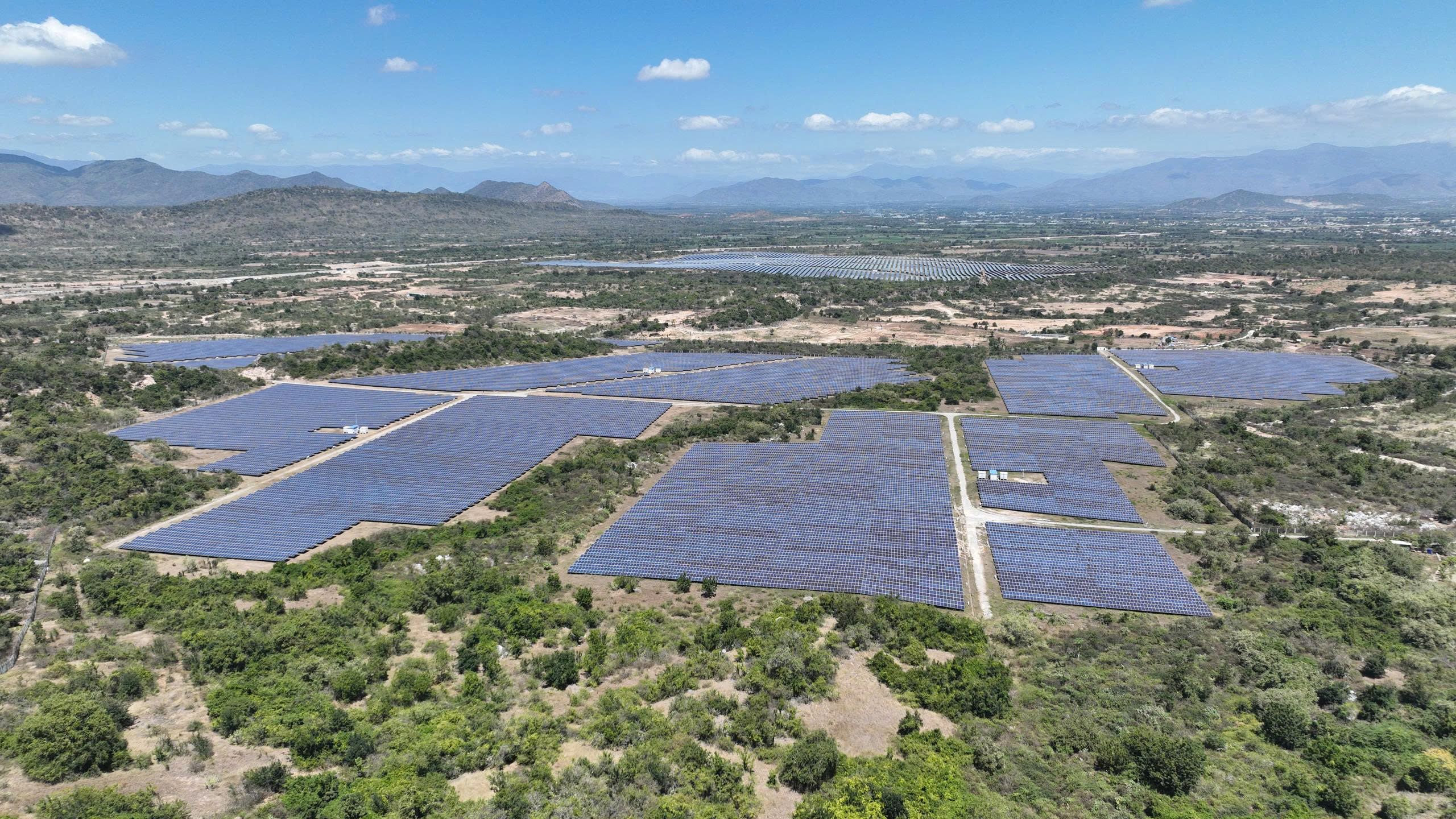
According to Dang Hai Dung, Deputy Director General of the Department of Innovation, Green Transition, and Industrial Promotion under the Ministry of Industry and Trade, in the current international context, the next decade will see new non-traditional challenges affecting Viet Nam.
First, there are challenges related to climate change and many aspects thereof. Foreign markets are now imposing technical barriers in the form of green standards and ESG (Environmental, Social, and Governance) standards on our export goods. When entering international markets, these products must meet certain requirements regarding low energy consumption and minimal environmental emissions. Specifically, the European market will begin applying a carbon tax from 2026, meaning that the amount of emissions such as carbon—associated with Vietnamese products will need to be accounted for. This marks the first time that technical barriers are being formally replaced by tariff barriers.
It is estimated that 80% of product-related emissions stem from energy-burning processes during production, while the remaining 20% relate to how waste is handled and discharged.
“Previously, we conserved energy to ensure sufficient electricity and power supply. However, in the near future, in line with global market trends, if we export goods without meeting social and environmental standards, we will be subject to taxation. Therefore, if we cannot meet emissions reduction commitments for each product, the competitiveness of our enterprises will decline, resulting in significant challenges when exporting to international markets,” Dung said.
Secondly, Dung highlighted the issue of supply chain disruption, which was clearly evident during the COVID-19 pandemic. Political changes directly impact supply chains, particularly energy supply chains, while fluctuations in oil and gas prices also hinder countries from maintaining autonomy in market planning and product policy.
According to experts, the energy sector has contributed positively to the country’s overall development over many years. However, it has also faced numerous challenges, notably the dependence on fossil fuels, which has led to environmental pollution and greenhouse gas emissions.
The transition from fossil fuels (such as coal, oil, and gas) to renewable energy sources (such as solar, wind, and hydroelectric power) typically requires significant initial investment in infrastructure, technology, and research. In practice, energy transition is a core element of net-zero policy. However, without an appropriate investment strategy, high energy costs may drive up inflation.
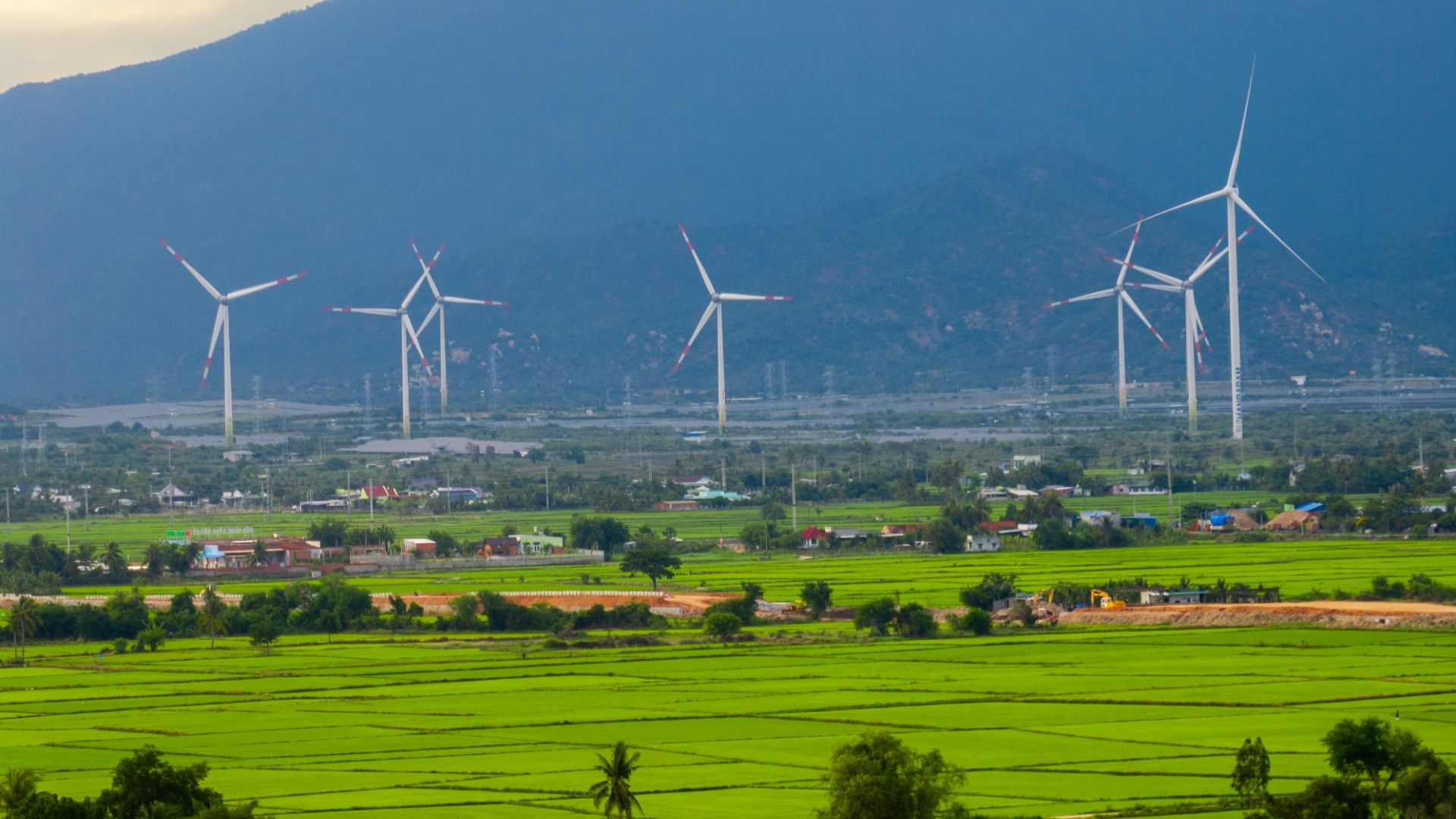
Law on Economical and Efficient Use of Energy needs revision

According to Dang Hai Dung, revisions to the Law on Economical and Efficient Use of Energy must address the two major challenges posed by international markets and supply chains. Doing so will help Viet Nam improve forecasting capabilities, allowing energy-consuming enterprises to make more accurate declarations, which in turn will support better governmental planning. With reliable data, the government can predict energy demand for the economy over the next one, two, or even five years, enabling a more proactive approach to energy production, supply, and management.
The National Assembly listens to the Government's presentation on the draft Law on Economical and Efficient Use of Energy.
The National Assembly listens to the Government's presentation on the draft Law on Economical and Efficient Use of Energy.
Dung stated that the proposed amendments focus on reducing energy losses throughout the entire process, from production to consumption. In addition to strengthening management measures, the revisions also introduce new mechanisms to support efficient energy use, such as financial instruments, including a fund for promoting economical and efficient energy use, one of the new elements of the law. Based on this fund, Viet Nam will be able to support the development of energy service companies capable of implementing relevant initiatives.
“It is expected that once the National Assembly passes the law, this support fund will offer enterprises converting production lines or manufacturing energy-efficient vehicles and equipment opportunities to access assistance, including technical support,” Dung said.
From the perspective of the legislative appraisal body, Nguyen Phuong Tuan, Vice Chairman of the National Assembly’s Committee on Science, Technology and Environment, noted that the draft law closely adheres to four key policy pillars.
The first policy focuses on enhancing the effectiveness of state management over energy conservation and efficiency. The second addresses development management for energy audit service companies or about human resource development. The third relates to financial incentives, especially the establishment of a fund to promote energy conservation and efficiency. The fourth concerns market transformation and performance management, including the implementation of energy labelling schemes.
Among these, the second and third policies are seen as directly responding to market demands. Deputy Director Nguyen Phuong Tuan added that the ESCO company solution has been stipulated in the current law, but in this amendment of the law, it has been institutionalised and specified, ensuring consistency with the legal system.
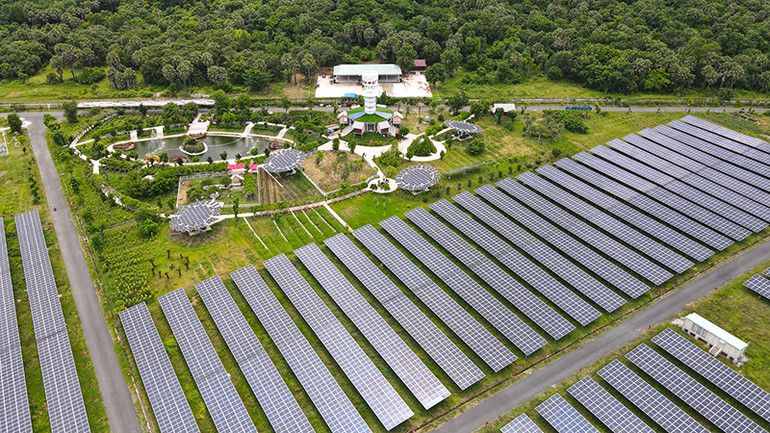
According to Vo Quang Lam, Deputy General Director of the Viet Nam Electricity Group (EVN), efficient energy use is one of the key pillars in the country’s energy transition. “In addition to green transition, if we do not improve energy efficiency and conservation, achieving the Net Zero target by 2050 will be a formidable challenge,” Lam emphasised.
Therefore, Lam believes that the timely enactment of the amended law will meet the expectations of businesses by providing better tools, solutions, and legal frameworks to jointly realise the national targets.
Notably, the Politburo’s recent adoption of Resolution No. 68-NQ/TW is expected to create momentum for businesses to implement solutions that promote energy conservation and efficiency in the coming period.
“EVN also sees this as an opportunity for collective efforts to ensure stable power supply and ensure a sustainably developing society. The demand for sustainable development in the next phase will pose a challenge, and all stakeholders must work together to participate effectively in this process,” Lam stated.
Vo Quang Lam further shared that in recent years, under the implementation of the national programme on efficient energy use issued by the prime minister, along with Directive No. 20/CT-TTg, electricity savings have been well adopted by localities, businesses, and citizens. In 2024 alone, Viet Nam saved approximately 2.64% of total electricity consumption, exceeding the 2% target set in the directive — a sign that many enterprises have made strong efforts. One notable example is Hoa Phat Steel, which has developed systems capable of generating up to 300–400 MW of electricity. These results are highly commendable and serve as influential models, helping to guide the implementation of the Party’s and government’s energy-saving policies.
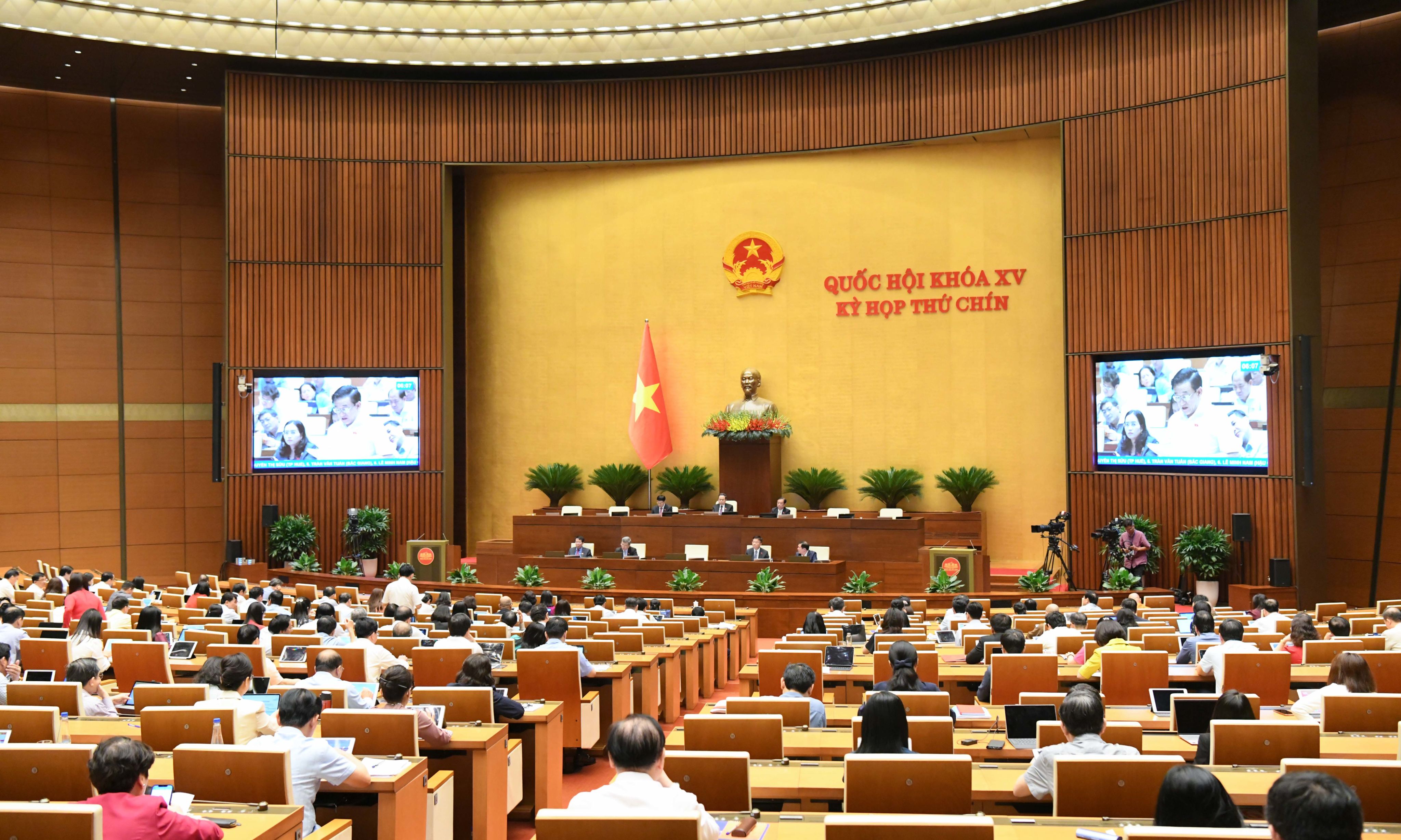
Using energy economically and efficiently, towards the goal of Net Zero 2050
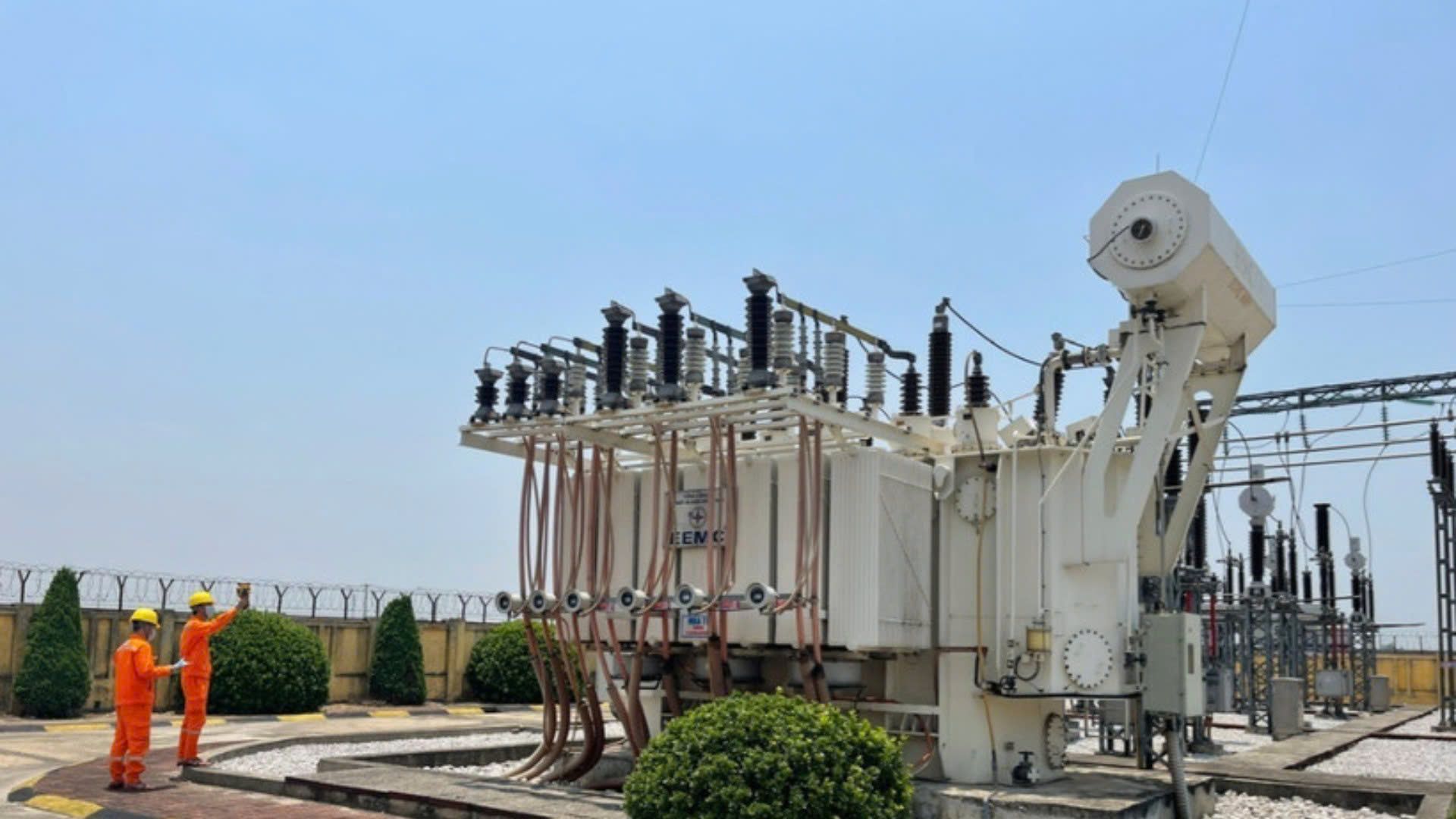
However, in the context of Viet Nam’s deepening international integration, and particularly in light of its commitment to achieving net zero emissions by 2050, a key question arises: how are the provisions in the draft law being reviewed to ensure consistency with international treaties to which Viet Nam is a signatory and to advance the Net Zero objective?
Addressing this issue, Nguyen Phuong Tuan, stressed that this was a fundamental concern during the appraisal process. The reviewing body consistently required the drafting agency to research, review, and evaluate very carefully to meet the criteria and international commitments in the United Nations Framework Convention on Climate Change and COP26, COP27.
“We recognise that the current amendment and supplementation of the Law on Efficient and Economical Use of Energy is also a means of fulfilling our international commitment to achieve net zero emissions by 2050. This is one of the key criteria addressed by the drafting agency, which has proposed a range of solutions in this revision, including the second and third policies I mentioned earlier. These are new measures tailored to address both Viet Nam’s practical realities and evolving global developments,” stated Tuan.
The need for prompt incentive mechanisms to seize opportunities
During National Assembly discussions on the draft Law amending and supplementing specific articles of the Law on Efficient and Economical Use of Energy, Deputy Tran Quoc Tuan from Tra Vinh province’s National Assembly delegation, stressed the political and practical importance of the legislation. He noted that its amendment is essential not only to meet the net zero target by 2050, but also to ensure energy security, reduce social costs, enhance competitiveness, and support sustainable development.
Discussing the development of the Energy Service Company (ESCO) model, he expressed support for the Government’s role in creating support mechanisms. The model brings mutual benefits: energy users enjoy lower electricity expenses while investors profit from savings. However, Tuan warned that without timely incentive schemes, Viet Nam risks missing out on a valuable opportunity.
He cited global examples, highlighting that around 25 countries have successfully implemented the ESCO model, recognising it as a market-based solution and a key enabler of the energy transition. In China, over 24 years of financial support and tax exemptions, from 1996 to 2020, have resulted in the growth of over 6,000 ESCO firms generating more than USD 82 billion in revenue and reducing annual CO₂ emissions by more than 100 million tonnes. The Republic of Korea has over 300 active ESCOs supported by a State Energy Saving Fund. Meanwhile, the EU and the United States utilise standard Energy Performance Contracts (EPCs) with tax incentives, green credit packages, and transparent independent audits. In Viet Nam, while around 200 enterprises operate under the ESCO model, their activities remain fragmented.
Tuan identified the lack of financial support and credit guarantees as primary barriers, noting that “businesses cannot buy electricity on trust.” He also cited the absence of independent systems for measurement and verification: “If you do the work but do not measure it, it is like taking an exam without grading.”
Based on these insights, he proposed that the Government expedite the establishment of a credit fund. The draft law already provides for a fund to promote efficient and economical energy use. He recommended this fund be used to offer green credit guarantees, enable the issuance of green bonds, and provide tax exemptions for high-efficiency projects. Additionally, an international system for measurement and verification should be developed, and monitoring activities should be socialised to build market credibility.
“We live in a world where there is little time left to delay; every action we take today—no matter how small, whether energy labelling of construction materials or encouraging the ESCO model—can contribute to preserving the environment for future generations,” Tuan concluded.
Clear evaluation criteria for efficient and economical use of energy

Deputy Can Thi Man of Thanh Hoa Province’s National Assembly delegation stated that incorporating efficient and economical energy use as a goal in national and provincial socio-economic development plans demonstrates Viet Nam’s commitment to translating its green and sustainable development ambitions into concrete action. It also reflects a clear shift in public awareness and governmental priorities surrounding energy use.
However, to ensure feasibility, she has proposed that the Government needs to issue clear guidelines on targets, measurement methods, and coordination mechanisms between central and local authorities. Accordingly, adding the Government’s authority to provide detailed regulations on this matter has been proposed, forming the basis for setting evaluation criteria for efficient and economical energy use.
The National Assembly deputy noted that the draft law currently only stipulates the encouragement and support for energy-consuming establishments to sign voluntary agreements with state management agencies on efficient energy use, but lacks any binding responsibility. Therefore, it has been proposed that the law be revised to mandate such agreements for major energy-consuming establishments, aiming to enhance legal accountability and enforcement effectiveness.
For state agencies, she recommended that the requirement to use energy economically and efficiently be made mandatory, as these agencies consume electricity, petrol, and oil funded by the state budget.
“If state agencies do not take the lead in efficient energy use, it will be impossible to mobilise or encourage the public and social organisations to follow,” the deputy stated.
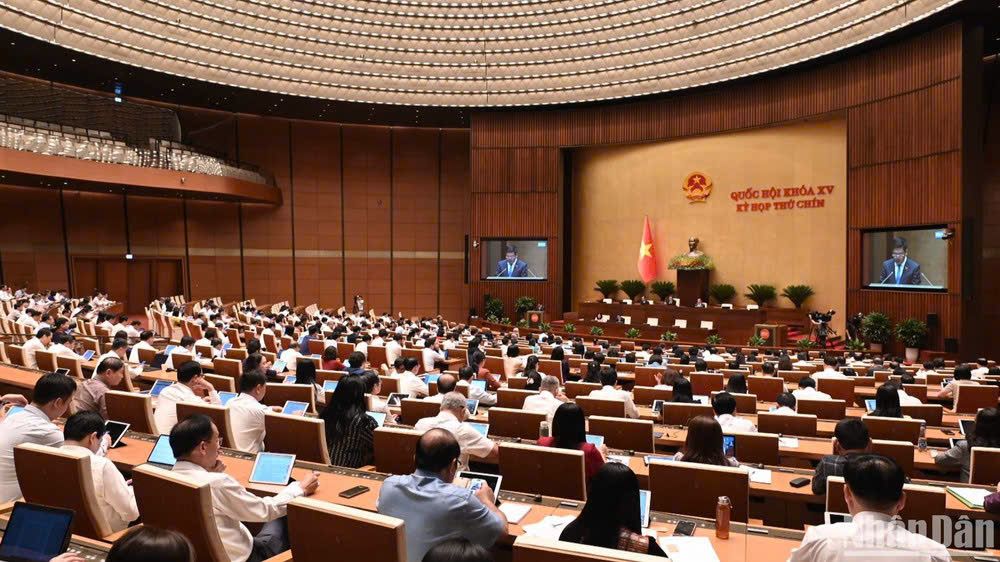
Deputy Do Ngoc Thinh from the National Assembly Deputy Delegation of Khanh Hoa Province, President of the Viet Nam Bar Federation, said that small and medium-sized enterprises (SMEs) often face financial and technical constraints in adopting energy-saving technologies.
He therefore proposed that the law include specific preferential support policies for SMEs, such as subsidies for energy audits, free technical consultancy, or reduced interest rates on loans from the fund on saving energy use promotion.
He also pointed out that while Article 41 of the draft law refers to greenhouse gas emission reduction and green technology transition, it lacks specific provisions on harmonising with international standards such as the Paris Agreement or COP commitments. Thus, it is necessary to synchronize with international regulations on green transition.
“I propose adding a clause requiring management agencies, such as the Ministry of Industry and Trade and the Ministry of Construction, to develop a roadmap to synchronize technical standards and energy norms with international standards. This will help Viet Nam fulfil its international commitments and attract green investment,” he suggested.
Minister of Industry and Trade Nguyen Hong Dien presents the draft law amending and supplementing a number of articles of the Law on Economical and Efficient Use of Energy before the National Assembly.
Minister of Industry and Trade Nguyen Hong Dien presents the draft law amending and supplementing a number of articles of the Law on Economical and Efficient Use of Energy before the National Assembly.
It is clear that to realise the Net Zero target by 2050, Viet Nam must have a modern, synchronous and strong legal framework. The amendment and enhancement of the Law on Economical and Efficient Use of Energy represents a strategic move in line with the country’s orientation towards sustainable development, green growth, and international integration. The law will serve not only as a management tool, but also a lever to promote changes from awareness to action of the whole society in the journey towards a carbon-free future.
On June 18, the National Assembly passed the amended and supplemented Law on Efficient and Economical Use of Energy.
Once passed, the law is expected to open a new chapter, improving practicality, feasibility, and effectiveness, while ensuring consistency and synchronisation of the legal system on energy use. It will enable Viet Nam to timely take advantage of, attract, and mobilise international resources to support and boost saving and efficient energy investment, thereby contributing to realizing the Net Zero goal by 2050.
Production Manager: NAM DONG
Content: THU HANG – MINH TUAN
Translation: NDO
Photos: BUI GIANG
Design: KIM THOA
